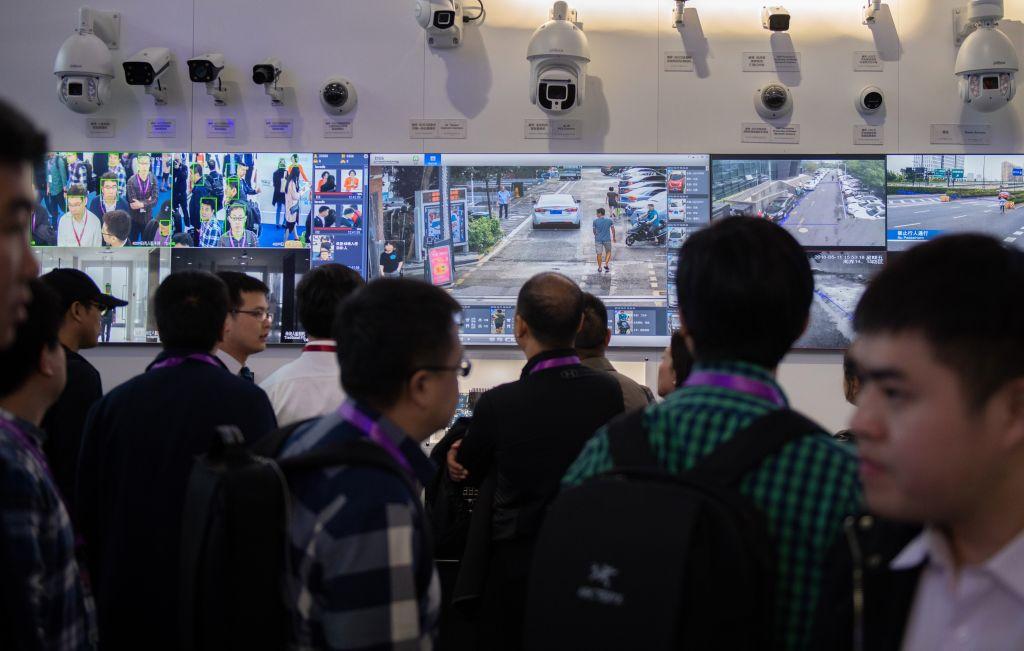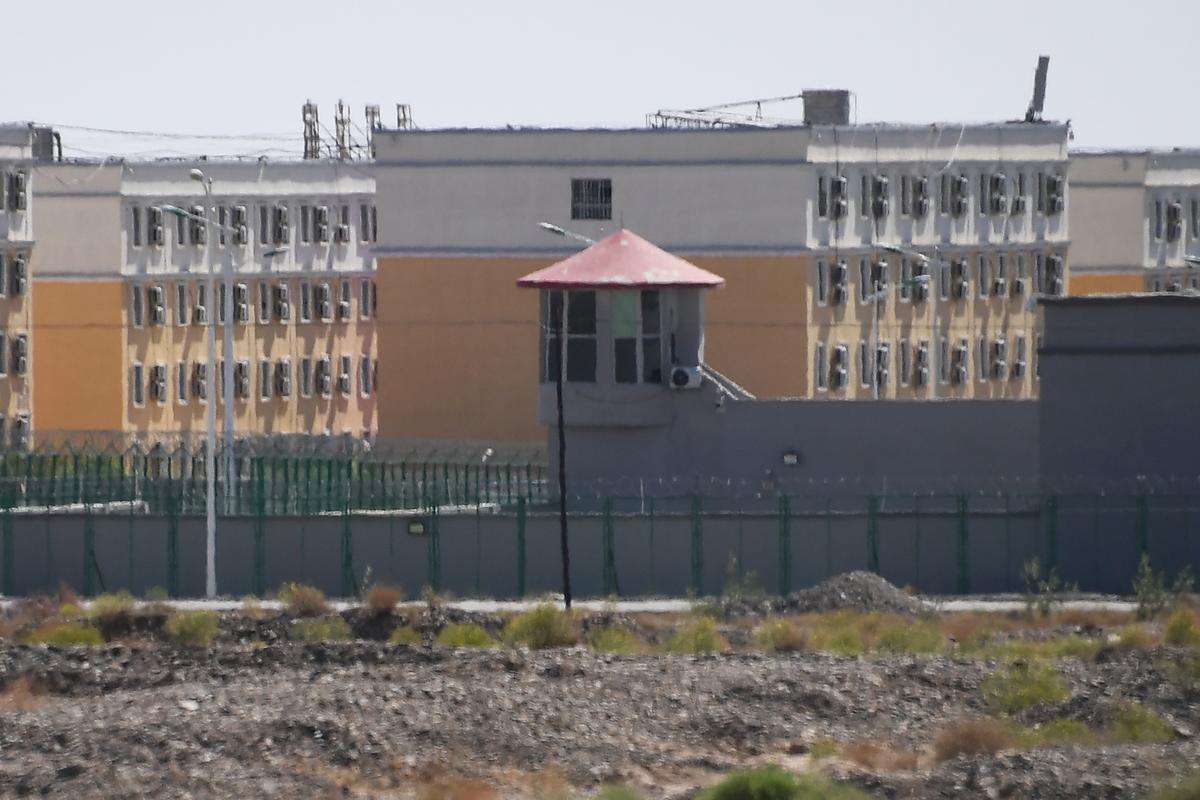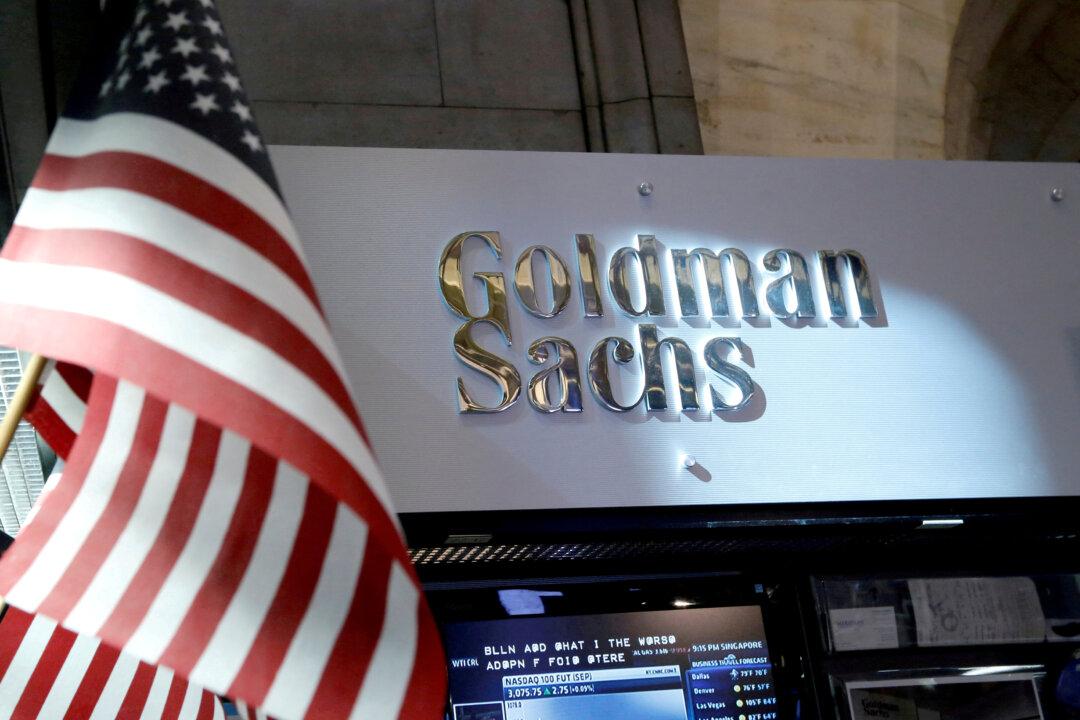NEW YORK/HONG KONG—Goldman Sachs Group Inc. said on Oct. 8 it was reviewing its involvement in Megvii Technology Ltd.’s planned initial public offering after the U.S. government placed the Chinese artificial intelligence firm on a human rights blacklist.
The Trump administration said on Monday that Megvii and seven other Chinese companies were targeted because they were implicated in Beijing’s repression of Muslim minority populations in the Xinjiang Uyghur Autonomous Region in the far west of the country.
In an emailed statement in response to a request for comment on the Alibaba-backed Megvii IPO, Goldman said it was “evaluating in light of the recent developments.”
Sources had previously told Reuters the listing was scheduled for Hong Kong in the fourth quarter and might raise as much as $1 billion.
Other U.S. companies involved with the blacklisted Chinese firms, whether as investors or as underwriters, are also likely to re-evaluate their relationships, risk consultants and Silicon Valley lawyers said.
Goldman is a joint sponsor of the Megvii IPO, alongside Citigroup Inc. and JPMorgan Chase & Co. which both declined to comment.
Megvii declined to comment on Goldman’s statement but said that it was in close contact with the Hong Kong Stock Exchange about its IPO plans and would continue to monitor developments.
Goldman had thoroughly evaluated the Megvii deal before initially signing onto it using its usual due diligence process, a person familiar with the matter said.

Known for its facial recognition platform Face++, Megvii will become the first Chinese AI firm to go public if the deal goes ahead.
Human Rights Abuses
The U.S. Department of Commerce on Monday barred eight companies, as well as 20 Chinese government entities, from buying U.S. technology without U.S. government approval.That will include high-powered computer chips made by U.S. companies such as Nvidia, Intel and Qualcomm, which are considered critical for building and operating many AI systems.
The government said the entities were “implicated in human rights violations and abuses in the implementation of China’s campaign of repression, mass arbitrary detention, and high-technology surveillance against Uyghurs, Kazakhs, and other members of Muslim minority groups.”
On Tuesday, the U.S. government imposed visa restrictions on Chinese government and Communist Party officials it believes responsible for the detention or abuse of Muslims in Xinjiang.
U.N. experts and activists say at least 1 million Uyghurs, and members of other largely Muslim minority groups, have been detained in camps in the remote region.
Beijing denies any mistreatment at the camps, which it says provide vocational training to help stamp out religious extremism and teach new work skills.

U.S. Senator Marco Rubio, who has been seeking to spotlight both the easy access that Chinese companies have been given to U.S. markets and human rights abuses in Xinjiang, said the government’s move had been long overdue.
“Putting Themselves at Risk”
In recent years, Chinese and some foreign investors have poured money into startups that specialize in facial and voice recognition software, as well as other surveillance equipment and software. They have been buoyed by China’s plans to build a ubiquitous CCTV surveillance network.Another company on the U.S. government’s blacklist, SenseTime, is among the world’s most highly valued artificial intelligence firms and counts marquee U.S. technology investors Tiger Global and Silver Lake Partners among its backers. Fidelity, the U.S. mutual fund firm, is also a SenseTime investor, along with Qualcomm.
The Massachusetts Institute of Technology said it will review its relationship with SenseTime, the first company to join the U.S. school’s research effort into human and machine intelligence.
MIT will review all of existing relationships with organizations on the blacklist and “modify any interactions as necessary,” a spokeswoman said in an email.
Risk consultants say that investors and underwriters have jumped into the sector without fully assessing the dangers both to their reputations and to the valuations of the companies concerned.
“There has been a dearth of adequate due diligence performed on these companies from both a national security and a human rights perspective,” said Roger Robinson, president and CEO of Washington DC-based risk consultancy RWR Advisory Group, and a former senior director of international economic affairs at the National Security Council.
He said that investors and others involved with these Chinese companies “may well be putting themselves at risk.”
Silver Lake, Tiger Global and Qualcomm all declined to comment. Fidelity didn’t immediately return a call seeking a comment.
“There will be a judgment call as to whether any U.S. investor would want to be associated with such businesses,” said Rocky Lee, managing partner of the Silicon Valley office of law firm King & Wood Mallesons.
“I believe you will see some ‘quiet’ exiting by U.S. funds and possibly LPs, at least those U.S. investors who feel strongly that owning companies engaging in these activities are either immoral or politically incorrect.”





